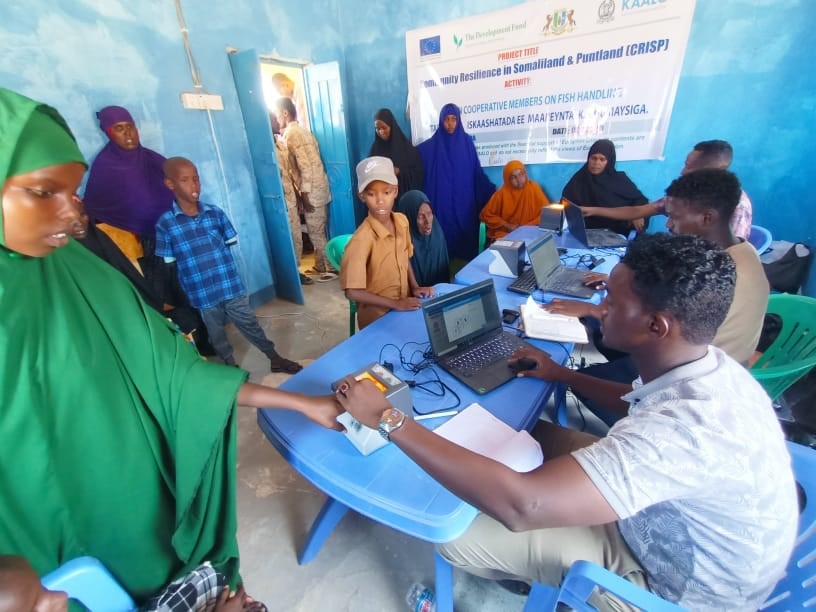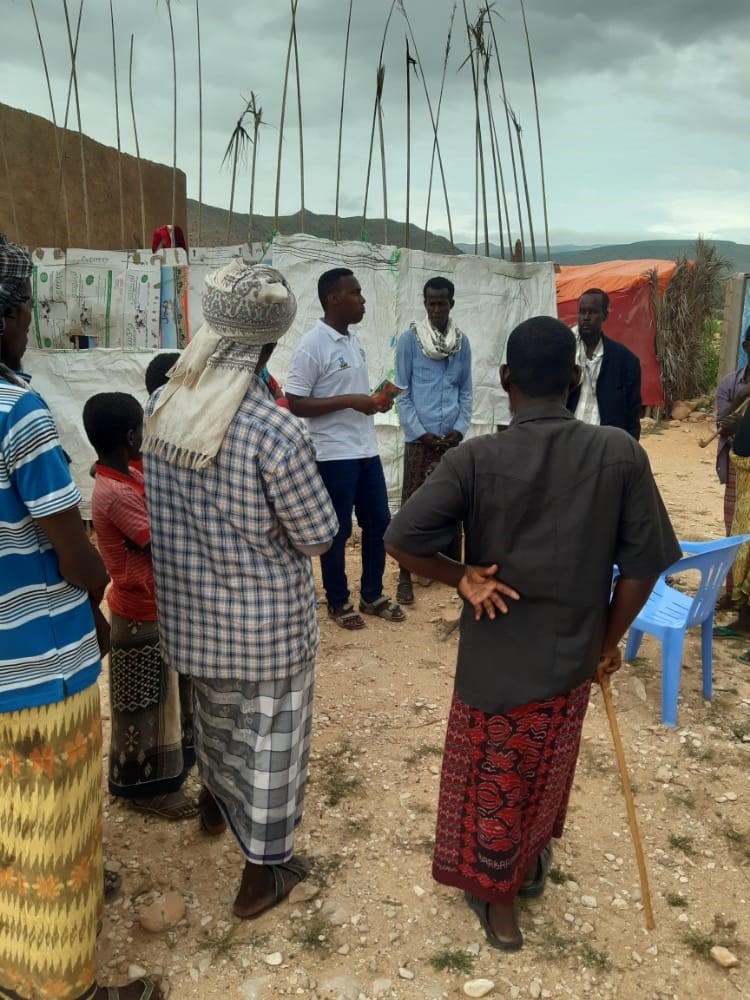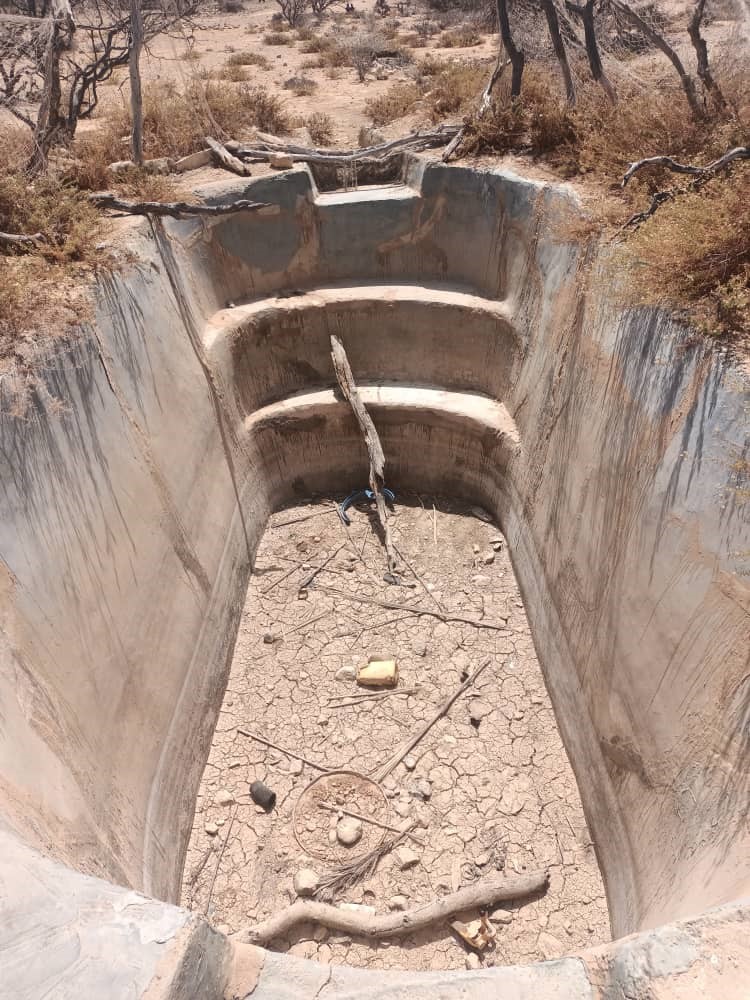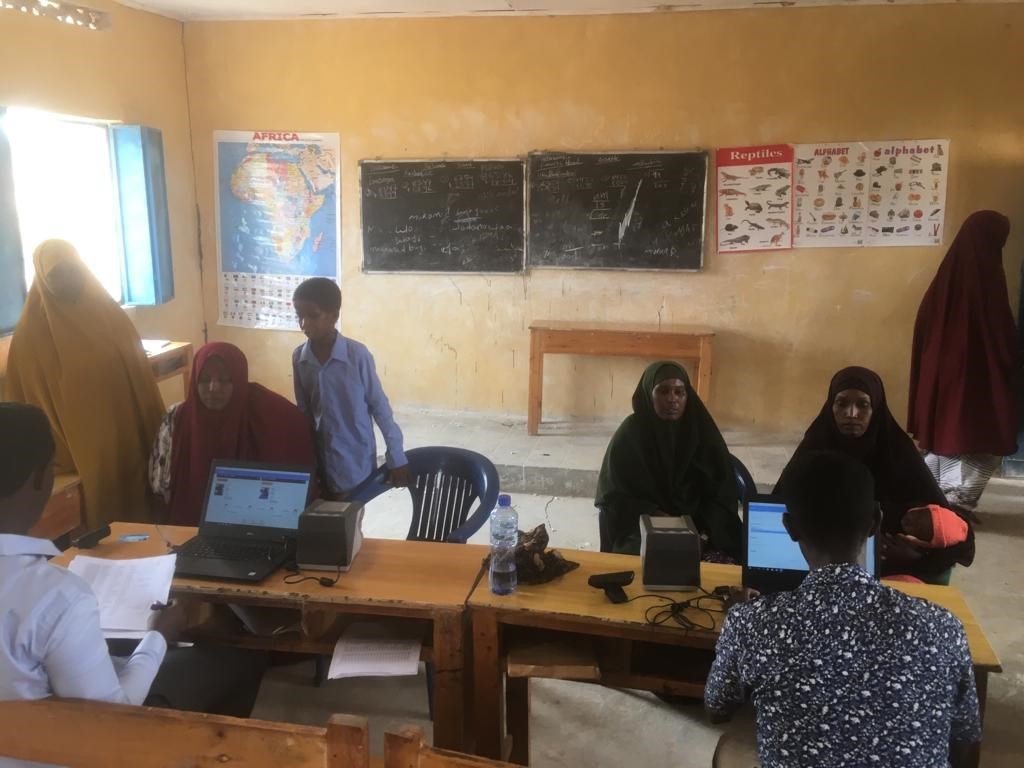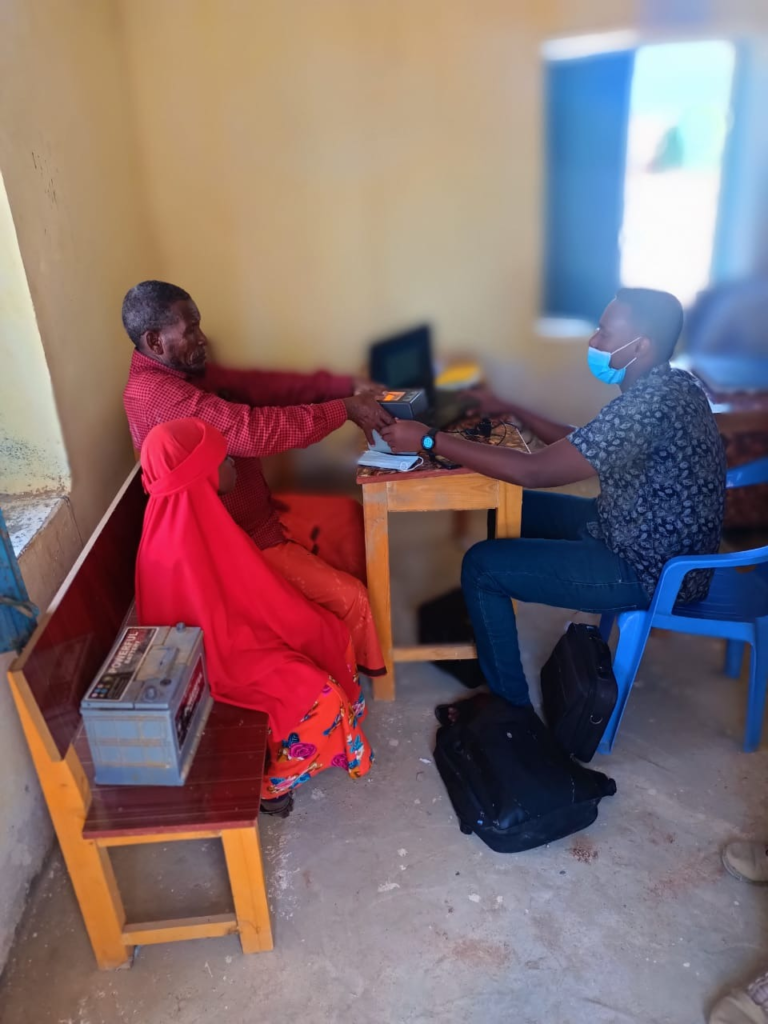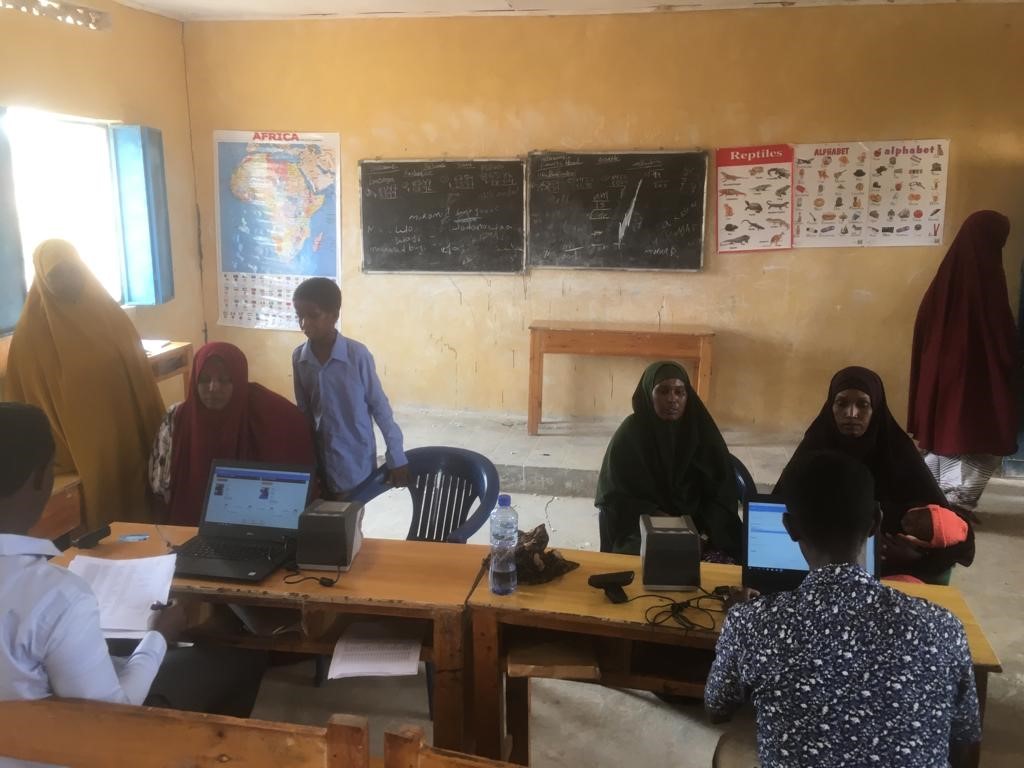In 2022, Action Against Poverty (AAP), in collaboration with the World Food Programme (WFP), implemented several key relief and livelihood projects in Caluula District, Puntland, to address severe food insecurity and water shortages exacerbated by extreme weather conditions, including floods and prolonged droughts. The relief intervention targeted 13,002 beneficiaries, focusing on improving food access for vulnerable pastoralist communities. AAP aimed to enhance community resilience through cash-based transfers (CBT) for food assistance, registration of beneficiaries into the SCOPE platform, and timely provision of essential food rations.
Throughout the year, AAP reported significant progress in its activities, including the successful registration and sensitization of beneficiaries for the voucher system. By February, 507 households had received their monthly cash transfer of $85, although challenges such as fingerprint duplications and issues with missing SCOPE cards were encountered. The distribution process was largely effective, with beneficiaries redeeming essential food items like rice and oil, reflecting high satisfaction with the intervention. Continuous monitoring and evaluation ensured that adjustments were made based on community feedback, enhancing the overall effectiveness of the program.
In addition to addressing immediate food needs, AAP implemented a livelihood project focused on improving access to safe water for livestock and households in Mudiye and Barxa. The project included the formation of community committees to identify the most vulnerable households, with an emphasis on empowering women and disadvantaged groups. While significant achievements were made, including nearly complete beneficiary registration and a successful cash top-up process, challenges such as lost SCOPE cards and limited resources relative to the needs of the population persisted. Nonetheless, community engagement remained strong, with beneficiaries actively participating in labor to support project goals.
AAP’s commitment to gender mainstreaming and protection issues was evident throughout the implementation of its projects, ensuring that women actively participated in decision-making processes and project activities. Collaboration with local authorities and stakeholders played a vital role in the effectiveness of the programs, and regular reporting mechanisms kept all parties informed of progress and challenges. The comprehensive approach adopted by AAP has contributed to improving food security and building resilience among the affected populations in Caluula District, while also addressing the underlying issues of access to resources and community empowerment.

